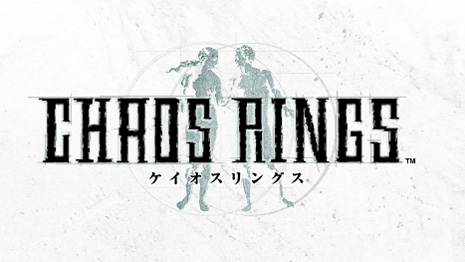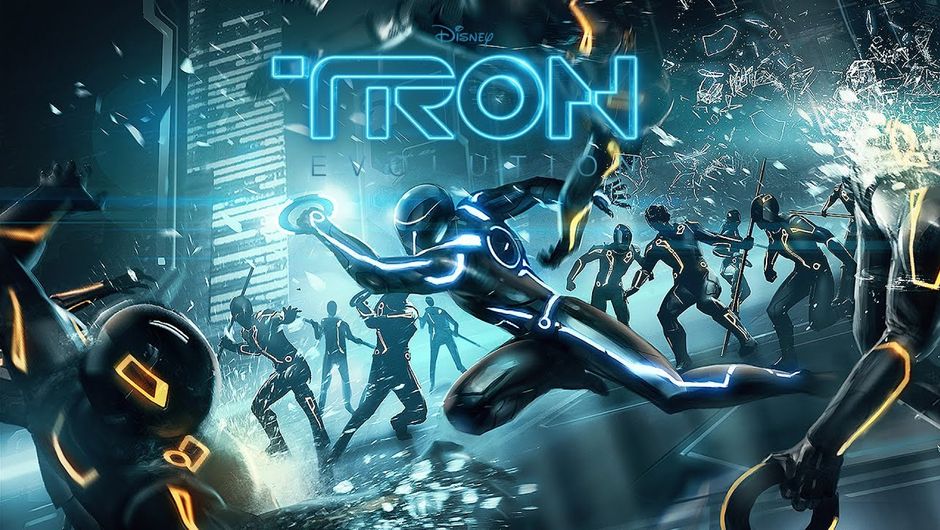There’s something in all of us that loves to root for the underdog. However, the gaming sphere is presently more critical than ever before. As a result, Capcom’s Remember Me, brand new developer Dontnod Entertainment’s brand new IP set in a dystopian Neo-Paris, was already getting panned by critics before it even launched commercially. Capcom’s reputation hasn’t exactly been doing well as of late, but does Remember Me really deserve all the negativity, or is this just a case of the underdog getting bullied by its bigger, badder competition?
Graphics
Let’s start off with my favorite part of any new game: the graphics. I’ll admit, I wasn’t expecting much from Remember Me in the graphics department, considering the first preview showed such blocky geometry and low-detail textures that the game looked almost last-gen. Thankfully it matured a lot in its development period, and the end result is overall one of the nicer looking games made with Unreal Engine 3. NPC models are a mixed bag ranging from ugly to impressively detailed, but they’re all better than say, Deus Ex: Human Revolution, which got by with some pretty ugly models and still managed to be a good game. Animations are smooth, fluid, and at times startlingly realistic–with the exception of lip-syncing, which is barely even there. Pre-rendered cutscenes are also mildly disappointing for the lack of emotion shown on characters’ faces, resulting in absolutely robotic expressions. None of it detracts from the gameplay, but it does hurt the immersion a bit. The sprawling cities and underground shantytowns, on quite the other hand, are definitely a sight for sore eyes. There is a strong and unique aesthetic consistent in each area of the game, and it is all distinctly Remember Me. On top of that, from slums to skyscrapers Neo-Paris is filled with tiny details that make the future shown in Remember Me feel like a real possibility for our world. The architecture is a terrific hybrid of classic European style fused with shiny scifi set pieces, and is truly a joy to run through.
Soundtrack
We’ve all heard scifi soundtracks before, and over the years we’ve seen a number of different approaches towards crafting them. Whereas most recent compositions mix electronic instruments with a real orchestra, composer Oliver Deriviere took a different approach for Remember Me‘s soundtrack and instead recorded a real orchestra and then distorted it to reflect a glitchy electronic feel. The result is immediately catchy and sets the tone for each scene perfectly. It’s not the sort of stuff you can go around humming, but like the graphics it’s the sort of stuff that is immediately recognizable as a part of this new IP. As nice as the graphics are, they needed backup equally as distinct and unique, and the soundtrack nailed it at every turn.
If I may slip one note about voice acting in under the ‘soundtrack’ category (for lack of a better place), it is simply this: it’s not Hollywood talent, and that’s ok. It’s a game. The voice acting in Remember Me made me think back to the Playstation 2 days, before big name actors and actresses signed on for video game roles. Nobody minded it back then, and in fact it’s the amateur voice talent that is so endearing about the classics now. That being said, the voices here aren’t amateur all across the board. The protagonist Nilin and a few other important roles are performed just fine, but everyone else tends to sound rather video game-y.
Gameplay
In a nutshell, Remember Me is an interactive movie. Everything is only intended to work one way, and usually it will. When things don’t go as planned, the game will just make you keep trying until you get it right. There’s nothing inherently wrong with this style of gameplay, but many gamers who have grown used to everything being part RPG will be a bit disappointed at the game’s limited structure.
Remember Me consists of two basic modes of play: platforming and melee combat. Platforming sequences are pretty straightforward: just follow the ever-present orange arrow. Although the story provides a logical reason for the excessive amount of help, I would have preferred the challenge of finding the way for myself–there’s usually only one pathway to take, but it often blends in with the scenery. Perhaps Dontnod felt the game would be too hard without assistance, but the result is too far in the other direction. The actual platforming experience is exactly what you’ll find in other popular platformers like Tomb Raider and Uncharted. It’s a tried and true running, jumping, and climbing formula that works as well here as anywhere, if not better what for Remember Me‘s excellent camera work—there’s just not much challenge in the platforming aside from a few tricky timed sequences. Thankfully controls are responsive, however they are often limited by the game’s idea of what you can and cannot do at any given place. It takes some tuning into, but really does not hurt the experience.
Thankfully, melee combat compensates for the ease of platforming. AI is not overly intelligent and generally runs on scripted events, but makes up for it with sheer numbers and powerful attacks. As the player you will fight back with four fully customizable combos that string together damaging, healing, ‘cooling’ (powerup re-energizing), and chain attacks as well as dodge enemies before they can land a hit. It’s a deceptively simple system that works well and pulls off some pretty incredible acrobatics in the process. And it is definitely not as easy to master as it is to learn. The system does allow you to use limit-break-style powerups to basically ‘cheat’ your way through brawls, but wherever these powerups were not required I generally found it preferable to bypass the mechanic in favor of normal combos. Whether or not you do the same is up to you—in the end, battles are enjoyable and satisfying, even if there’s still room for improvement.
There is also a third, special game mechanic found in Remember Me‘s four (well, technically five) Memory Remix sequences. In these segments, your goal is to rework someone’s memory of what really happened to something radically different in order to affect their actions as you desire (read: as intended by the story). Lots of little details can be reworked in these sequences, creating both good and bad butterfly effects. Your job is to discover by process of trial and error which of these elements to change. Since you aren’t tasked with giving anyone a rosier vision of the past, the results are often appropriately gut-wrenching. The Memory Remixes really drive home the story’s point about the importance of our memories: change someone’s memories, and you change who they are. Or put into corporate/political terms: control someone’s memories, control the world. Scary stuff. It’s too bad there aren’t more Remix sequences in Remember Me, but rarity adds gravity to each one.
Story
By its nature, the story of Remember Me either makes or breaks the game. While it mostly does the former, in a few ways it does both. The central plot of a device that enables humans to share their memories like the ultimate social network is fresh and intriguing, and in many ways is carried out effectively. For example, early on in the game you will need to know your way around the city, and so you’ll be assigned to steal the memories of the architect that designed much of it. Such smart applications of the plot’s main idea make it very much a pleasure to experience. But at the same time, its hard to conceive of how an implant of Sensen’s nature could turn memory abusers into a horde of deformed Gollums colloquially referred to as “Leapers” (does every game really have to include some form of zombie?). Furthermore the bits of game history, written like newspaper articles in collectible Mnesist objects, are occasionally a bit far-fetched. It’s really a shame, because so much of the game is believable in its execution—there’s just some bumps along the way. The “facts” are there in Remember Me, but every once in a while the game’s story seems to take itself more seriously than its audience is able to, and it feels like more could have been done to take advantage of key ideas and put greater focus on the interesting aspects of the plot.
Small problems like this can be pretty easily overlooked in the grander scheme of the game, though. Without giving any spoilers, Remember Me‘s storyline is sufficiently original to get players through the game’s 10 hours and be happy to pick it up again for more playthroughs in the future, but unfortunately the plot starts out slowly enough that some might give up before reaching the more interesting details. The better part of Remember Me is not blockbuster material and comes off as a bit shallow or clichéd, but viewed in full leaves a good, emotional impression. Rest assured that the farther along you get the better the story becomes, but it’s too bad it had to start out on a low note.
Conclusion
Much of what Remember Me does has already been done slightly better by other games, but that doesn’t mean you should ignore it. The presentation style may be somewhat out of date, resembling a PS2 game with PS3 graphics, but that doesn’t change the fact that there’s a lot to like about Dontnod Entertainment’s first big effort. Remember Me has a strong character all of its own built around an interesting concept that just didn’t get fleshed out as much as it could have, or as well. But while it’s easy to pick apart the finer details, what we have here is still very much a good game.
“Cinematic” needs to start being treated like a genre and not a feature. There’s nothing wrong with the “interactive movie” style of gameplay, but developers need to be upfront about their games being made this way. A lot of core gamers would groan at the announcement of a new addition to the “cinematic genre”, but at the same time these gamers wouldn’t be disappointed come launch day when they get a mostly on-rails experience. The audience for Remember Me is out there, but it might never be found thanks to hyped marketing directed at the wrong people who score the game low and turn away would-be satisfied customers in the process. I don’t fault the game for all of its perceived shortcomings so much as I fault naysayers for having too limited a perspective to appreciate it. If Remember Me is your cup of tea, you will have fun with it. If you were expecting an open experience, you will probably be disappointed. But seeing as this is a matter of the gamer and not of the game, it isn’t fair to knock off points and make Remember Me look like a bad product. Certain smaller aspects are objectively poor, but the the game has a solid foundation with the artistry, quality programming, and intriguing story (at least in the second half) to back it up. Approach this one with an open mind and it will reward you for it. I don’t usually give scores on reviews, but this is one case where I feel it’s necessary, so here it comes: [A-] Flawed, but still well worth playing.
Remember Me is available now for PC, Xbox 360, and Playstation 3










